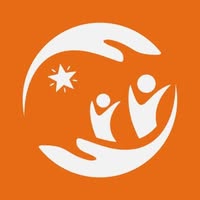Impact of Adverse Childhood Experiences on Personality Development within a Collectivist Culture
ACEs and Personality in Collectivist Culture
Keywords:
Adverse childhood experience, Collectivist culture, Personality development, Trauma, Young AdultsAbstract
Background: Personality development is influenced by various factors including adverse childhood experiences (ACEs), which refer to abuse, neglect, and family dysfunction during childhood. Within collectivist cultures, the impact of ACEs on personality development may differ from individualistic societies due to cultural values emphasizing family harmony and group cohesion. This study aimed to assess the impact of ACEs on personality development within a collectivist culture context.
Methods: A cross-sectional quantitative study was conducted among 402 individuals aged 18-30 years from Pakistani collectivist culture. Data collection occurred in two phases: Phase A used the Adverse Childhood Experiences Revised Questionnaire (10 items) to assess ACE exposure, and Phase B employed the Big Five Personality Assessment (87 items) among 227 participants who had experienced ACEs. Spearman's rank correlation analysis was used to examine relationships between ACE exposure and personality traits.
Results: ACEs were more prevalent among males (63.4%) compared to females (53.0%), individuals with lower education levels, and those from low-income (75.9%) or upper-class (78.9%) socioeconomic backgrounds. No significant correlations were found between ACE exposure and any of the Big Five personality traits (openness, conscientiousness, extraversion, agreeableness, neuroticism; all p > 0.05). Cultural taboos and limitations in discussing childhood adversities may have influenced participant responses.
Conclusion: Despite significant demographic differences in ACE prevalence, no substantial associations were found between ACE exposure and personality trait development in this collectivist culture sample. Cultural factors, including societal taboos surrounding family dysfunction, may have affected honest reporting of childhood experiences. Mental health awareness programs and trauma screenings should be integrated into healthcare and educational practices while considering cultural sensitivities in collectivist societies.
References
Abbott T. Social and personality development. Routledge; 2021.
Pusch S, Mund M, Hagemeyer B, Finn C. Personality development in emerging and young adulthood: A study of age differences. Eur J Pers. 2019;33(3):245-63.
Riyadi S, Nurdin S, Samad D. The development of adolescent wirid models in fostering character using local wisdom approaches in the city of Padang. ENDLESS: Int J Future Stud. 2022;5(1):340-8.
Cherry K. How personality traits are developed and change over time. Verywell Mind [Internet]. 2023 [cited 2023 Mar 20]. Available from: https://www.verywellmind.com/are-personality-traits-caused-by-genes-or-environment-4120707
Alegre A, Pérez-Escoda N, López-Cassá E. The relationship between trait emotional intelligence and personality. Is trait EI really anchored within the big five, big two and big one framework? Front Psychol. 2019;10:866.
Gross ME, Zedelius CM, Schooler JW. Cultivating an understanding of curiosity as a seed for creativity. Curr Opin Behav Sci. 2020;35:77-82.
Prior K, Carvalheiro M, Lawler S, Stapinski LA, Newton NC, Mooney-Somers J, et al. Early trauma and associations with altruistic attitudes and behaviours among young adults. Child Abuse Negl. 2021;117:105091.
Swader CS. Loneliness in Europe: Personal and societal individualism-collectivism and their connection to social isolation. Soc Forces. 2019;97(3):1307-36.
Mithun S, Goldfarb N. Incorporating global learning perspectives in a freshman computing curriculum. In: 2022 IEEE Frontiers in Education Conference (FIE); 2022. p. 1-9.
Chen SH, Zhou Q. Cultural values, social status, and Chinese American immigrant parents' emotional expressivity. J Cross Cult Psychol. 2019;50(3):381-95.
Lee H, Chung I. Associations between adverse childhood experiences and adult health outcomes: Exploring gender difference. Korean J Child Stud. 2021;42(3):1-15.
Goodall K, Robertson H, Schwannauer M. The relationship between adverse childhood experiences and educational disadvantage: A critical perspective. Edinburgh Univ Press J. 2020;29(4).
Anderson AS, Siciliano RE, Henry LM, Watson KH, Gruhn MA, Kuhn TM, et al. Adverse childhood experiences, parenting, and socioeconomic status: Associations with internalizing and externalizing symptoms in adolescence. Child Abuse Negl. 2022;125:105493.
Grusnick J, Garacci E, Eiler C, Williams J, Egede L. The association between adverse childhood experiences and personality, emotions and effect: Does number and type of experience matter? J Res Pers. 2020;85:103908.
Boullier M, Blair M. Adverse childhood experiences. Paediatr Child Health. 2018;28(3):132-7.
Duong CD. Big Five personality traits and green consumption: bridging the attitude-intention-behaviour gap. Asia Pac J Mark Logist. 2022;34(6):1123-44.
Font SA, Maguire-Jack K. Pathways from childhood abuse and other adversities to adult health risks: The role of adult socioeconomic conditions. Child Abuse Negl. 2016;51:390-9.
Hippisley-Cox J, Young D, Coupland C, Channon KM, San Tan P, Harrison DA, et al. Risk of severe COVID-19 disease with ACE inhibitors and angiotensin receptor blockers: cohort study including 8.3 million people. Heart. 2020;106(19):1503-11.
Hsieh YP, Shen ACT, Hwa HL, Wei HS, Feng JY, Huang SCY. Associations between child maltreatment, dysfunctional family environment, post-traumatic stress disorder and children's bullying perpetration in a national representative sample in Taiwan. J Fam Violence. 2021;36:27-36.
Kitirattarkarn GP, Araujo T, Neijens P. Challenging traditional culture? How personal and national collectivism-individualism moderates the effects of content characteristics and social relationships on consumer engagement with brand-related user-generated content. J Advert. 2019;48(2):197-214.
Miller JR, Cheung A, Novilla LK, Crandall A. Childhood experiences and adult health: the moderating effects of temperament. Heliyon. 2020;6(5):e03927.
Navarro R, Larrañaga E, Yubero S, Víllora B. Associations between adverse childhood experiences within the family context and in-person and online dating violence in adulthood: a scoping review. Behav Sci. 2022;12(6):162.
Pace CS, Muzi S, Rogier G, Meinero LL, Marcenaro S. The Adverse Childhood Experiences--International Questionnaire (ACE-IQ) in community samples around the world: A systematic review (part I). Child Abuse Negl. 2022;129:105640.
Sonuga‐Barke EJ, Cortese S, Fairchild G, Stringaris A. Annual Research Review: Transdiagnostic neuroscience of child and adolescent mental disorders-- differentiating decision making in attention‐deficit/hyperactivity disorder, conduct disorder, depression, and anxiety. J Child Psychol Psychiatry. 2016;57(3):321-49.
Yuan S, Weiser DA, Fischer JL. Self-efficacy, parent--child relationships, and academic performance: A comparison of European American and American college students. Soc Psychol Educ. 2016;19:261-80.
Downloads
Published
How to Cite
Issue
Section
License
Copyright (c) 2025 This work is licensed under a Creative Commons Attribution 4.0 International License.

This work is licensed under a Creative Commons Attribution 4.0 International License.
This work is licensed under a Creative Commons Attribution 4.0 International License.








